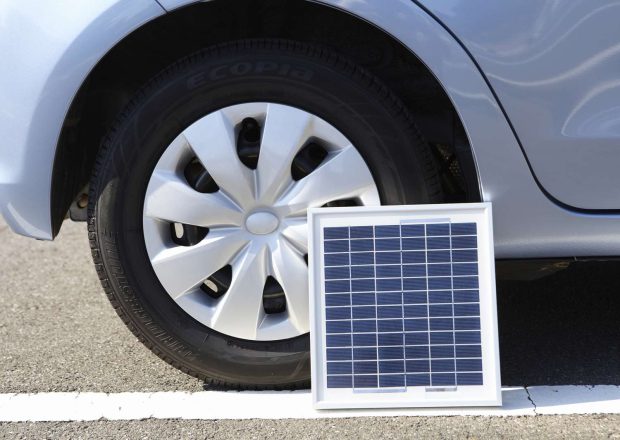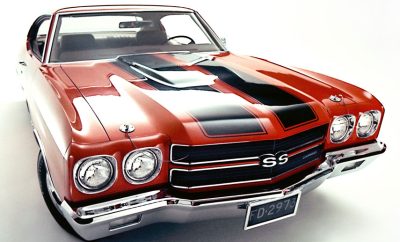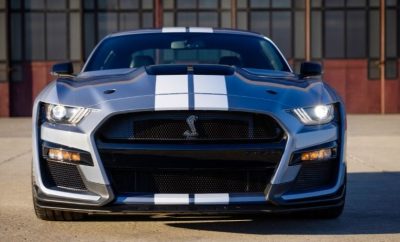Best Muscle Cars
Do Solar-Powered Car Battery Chargers Actually Work for Muscle Cars?

With the growing interest in sustainable tech (even among performance car owners), solar-powered car battery chargers are becoming a handy tool in the muscle car scene. But are these compact solar panels just a gimmick, or can they actually help protect and preserve your prized ride’s battery? Let’s take a closer look at how these chargers work, when they’re useful, and whether they’re worth adding to your garage setup.
How Solar Car Battery Chargers Work
Solar-powered car battery chargers use photovoltaic (PV) panels to convert sunlight into energy. That energy is then fed directly into your vehicle’s battery, usually through a 12V cigarette lighter socket or via battery terminal clamps. These are usually trickle chargers – providing a low but steady current to maintain your battery’s charge over time.
This is especially useful for classic and modern muscle cars that aren’t driven daily. Whether you’ve got a weekend cruiser like a Dodge Challenger or a show car tucked away in storage, letting your battery sit idle can lead to problems. Even when parked, vehicles draw a small amount of power from systems like alarms, ECUs or clocks – known as parasitic battery drain. You can learn more about the common causes of parasitic battery drain in this guide.
Do They Actually Work?
Yes… but with some limitations. Solar-powered chargers can be effective for maintaining a charge, but not necessarily for reviving a flat battery. Here’s what affects their performance:
- Sunlight Exposure: These chargers need direct sunlight to function. If your muscle car is stored indoors or under cover, performance drops.
- Wattage Matters: Lower-wattage chargers (1.5W-5W) are great for maintenance. Higher-wattage panels (10W-20W+) can deliver more power but still charge slowly.
- Battery Size and Condition: Larger batteries (often found in V8-powered classics or modern muscle cars) require more current than a small panel can supply if fully drained.
When are Solar Chargers Useful for Muscle Cars?
If you’re a muscle car owner who:
- Stores your vehicle for long periods (off-season or winter hibernation)
- Parks outdoors in full sun
- Wants a low-maintenance way to prevent battery drain between drives
- Takes your car off-grid for track days or camping adventures
… then a solar battery charger can be a surprisingly useful addition to your toolkit. Many owners pair their solar charger with a battery maintainer or tender during extended storage to keep their vehicle ready to fire up at a moment’s notice – no jumper leads or replacements needed.
Pros and Cons of Solar Car Battery Chargers
Pros:
- Helps extend battery life by preventing deep discharges
- Eco-friendly and passive (works as long as there’s sun)
- Perfect for long-term vehicle storage or infrequent driving
- Lightweight and portable (easy to stash in the boot)
Cons:
- Slower than traditional plug-in chargers
- Dependent on good sunlight exposure
- Not ideal for reviving a completely flat battery
- Higher-wattage versions require a charge controller to prevent overcharging
Tips for Getting the Most Out of a Solar Charger
- Choose the right wattage: For classic muscle cars that sit idle, 5W-10W models are typically sufficient.
- Sunlight is key: Mount the panel on your dashboard or windscreen for maximum exposure.
- Use a charge controller: Especially for panels over 10W – this prevents overcharging in strong sun.
- Clean the panel regularly: Dust or leaves can reduce efficiency.
The Final Verdict
If you own a Ford Mustang, Chevrolet Camaro, Dodge Charger or other kind of muscle car that spends more time in the garage than on the road, a solar-powered battery charger is a smart, low-effort way to maintain your battery’s health… without needing constant attention. While it’s not a substitute for a heavy-duty charger or jump starter, it is a reliable tool for passive maintenance, especially if you’re parking outdoors or planning extended downtime.
For gearheads who want to keep their machine ready to roar (and avoid the headache of a dead battery!), a solar charger might just be the unsung hero in your glovebox.









0 comments